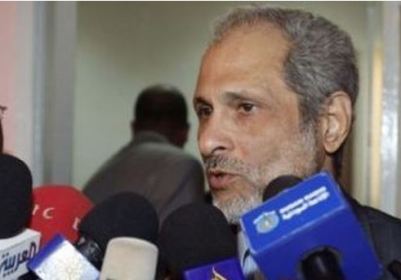Leader of NCP reformists warns peers against “personal appeasement” attempts
November 10, 2013 (KHARTOUM) – The leader of the reformists group which recently split from the ruling National Congress Party (NCP), Ghazi Salah al-Deen al-Attabani, has warned against attempts to appeal to some of the reformists through personal appeasement.

He added that the initiative must further include reform of the state institutions such as the parliament, fighting corruption, reviewing federal system, slashing government spending, reviewing laws restricting freedoms and arriving at a national consensus on conducting free and fair elections.
“Any move which ignores those issues and resorts to the famous approach of appealing to individuals through personal appeasements would only exacerbate the crisis”, the formal presidential adviser said.
The Islamic Movement (IM) which is considered the ideological arm of the NCP, has reportedly formed a quintet committee earlier this month headed by the IM secretary general, Al-Zubair Ahmed Al-Hassan, mandating it to negotiate with the reformist group to return to the NCP.
The reformist leader pointed that their differences with the NCP revolved around issues of principle including the recent economic measures and the killing of innocent civilians.
Last September, one of the deadliest wave of protests in Sudan’s history erupted against the government decision to cut fuel subsidies and hike prices of gasoline and diesel
Authorities said that 84 people were killed in the demonstrations but opposition, human rights organizations, and activists put the death toll at more than 200.
Al-Attabani further added that their differences with the NCP were not on “personal issues”, saying that any attempt to resolve them on this basis is doomed to fail.
Meanwhile, the NCP spokesperson, Yasser Youssef, stressed in statements on Sunday that reform efforts within his party are continuing, adding that there is no “ready recipe” which could be applied in order to arrive at the desired reform.
Last month, an NCP commission of inquiry established by Sudan’s president Omer Hassan Al-Bashir who is also the president of the NCP recommended the dismissal of Al-Attabani along with two other members and suspending nine others.
The punished members were among a larger group that included more than 30 NCP figures which signed on an open petition to president Bashir last September following the government’s decision to cut fuel subsidies.
The signatories including lawmakers and retired army officers called for reinstating the subsidies due to its “harsh” impact on ordinary Sudanese and demanded that the government prosecute those behind the use excessive violence against protestors.
They also urged Bashir to form a mechanism for national reconciliation comprised of various political forces and assign the economic dossier to a professional national economic team.
“The legitimacy of your rule has never been at stake like it is today” they said in their letter to Bashir which was seen as a direct challenge to the president who is now the country’s longest serving leader.
Al-Attabani declared his intention to leave the party and form a new one that would “bring new hope to Sudan”.
The first split within the NCP took place in 1999 following a bitter power struggle between Bashir and Islamist leader Hassan Al-Turabi, with the latter subsequently ousted from his post as parliament speaker.
Al-Turabi later established the Popular Congress Party (PCP) and has since been a vociferous critic of the very regime for which he orchestrated the army-backed seizure of power in 1989.
The NCP has been facing growing difficulties particularly as its coffers dried up after the oil-rich south became an independent nation in July 2011.
Last November the Sudanese government said that it uncovered a “sabotage” attempt that was later upgraded and labeled as a coup. Authorities arrested dozens of suspects in the army and security apparatus including ex-spy chief Salah Gosh and Brigadier General Mohamed Ibrahim Abdel-Galil who served in Bashir’s security detail at one point.
(ST)
